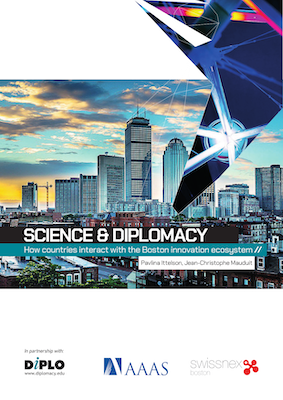Note: This article is a part of the publication ‘Science diplomacy capacity development: Reflections on Diplo’s 2021 course and the road ahead’
The topic Science Diplomacy has been a personal interest since 2016 when I first heard about the term and started researching it. My interest grew and I started to pursue more evidence-based learning. It was a great opportunity to have joined Diplo’s Science Diplomacy course in October 2021. The course helped me learn about the tools and the progress of the topic, to help in applying it to the context of my career, my country’s challenges, and future plans.
In the center of an unsettled region lies my country, Jordan. Neighbouring countries, in the political context, are in continuous conflict. Refugees are flowing into a country with very few natural resources, impacting its economy and therefore political stability. This scenario is one where Science Diplomacy can play a big role. The presence of Science Diplomacy in international negotiations, setting the size of donor funding in the example of my country, can most importantly contribute to navigating funding programmes properly using scientific evidence and opinion, and identifying potential consequences to mitigate the repercussions of an ever changing situation.
When I pursued my studies in physics, to fulfill the passion I have for science, little did I know then that my career journey would be around Science Diplomacy. Two years in a university laboratory, four years of ‘boundary spanning’ profession, followed by two years with an international research center, and finally my current position with a diplomatic organisation in Jordan, on a science and innovation fund. My last stop may sound like the last piece of the puzzle that completed my Science Diplomacy career, which will equip me with the skills needed to put science in a position of influence, affecting the decision making of governments for a better and safer world.
As the manager of the Newton-Khalidi Fund (NKF), a UK initiative funded by its Official Development Assistance (ODA), I lead on the bilateral relationship between scientific organisations in both countries. The fund runs activities with the aim to support the economic development of the host country. The economy of my country, Jordan, has been challenged for years now (Iffat, 2016). In the course of implementing NKF programmes, I stumble upon the world of Science Diplomacy quite frequently, where I learn how to be a diplomat keen to sustain a bilateral partnership, meeting the priorities of both countries and achieving co-ownership. My interest in developing these skills has to do with the aim of enhancing science policy practices in my own country.
Looking forward, I am planning to advertise the concept more within academic institutions in Jordan, to open new possibilities and demonstrate the responsibility a scientist holds upon her/his shoulders in international science collaboration. From a personal point of view, I find it easier and more logical for a scientist to learn the world of diplomacy, which already exists, acquiring the needed skills to bring science into the spot-light, rather than a diplomat doing it the other way around. The term Science Diplomacy is relatively new, however the practice can be traced back to the 1700s (Flink and Rüffin, 2019, p. 104). We will witness more academic curricula addressing the topic, more universities offering degrees of Science Diplomacy, and I want my country, too, to realise its importance.








